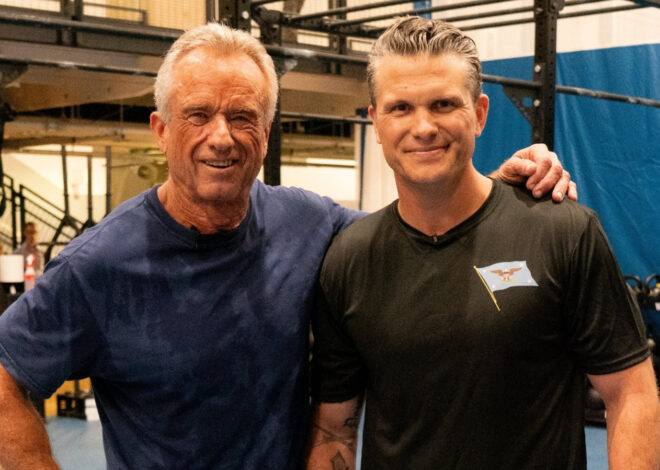
Pete Hegseth’s Daily Diet Includes A Controversial Eating Habit – Health Digest
You may not want to take diet advice from Pete Hegseth if you’re looking to eat in a way that’s friendly to the environment. While serving as co-host of Fox & Friends Weekend, he took a jab at so-called “climavores” — people who choose foods with a smaller carbon footprint. Hegseth, who isn’t a registered dietitian or doctor, suggested people should just stick to “stuff that grows, stuff that moves,” meaning minimally processed plants and meats.
Hegseth doesn’t share much about his diet on social media, but his former Fox News colleagues couldn’t resist bringing him up during a segment on the 5-second rule. Host Ainsley Earhardt recalled how Hegseth didn’t exactly stress over food hygiene. “Pete Hegseth would have a bagel with cream cheese. He would drop it, it would land upside down with cream cheese on the floor, and pick it up,” she laughed. “And he would just pop it into his mouth.” Earhardt brushed off the behavior, chalking it up to Hegseth being an “Army guy.”
You might laugh at the 5-second rule – or maybe you even live by it yourself. After all, how many germs can food really pick up in just a few seconds on the floor? Is this controversial eating habit actually safe?
The 5-second rule can depend on several factors
Floors can harbor a surprising number of germs. Bacteria and other contaminants from outside easily make their way indoors on shoes and clothing. Even if you keep your floors clean at home, public floors are a different matter, and food dropped on them may not be safe to eat. A 2021 study in the Journal of Community Medicine and Public Health Research tested how quickly food picks up bacteria by dropping cheese cubes onto floors at a student canteen and a hospital. After just one second, the cheese dropped on the hospital floor was already heavily contaminated with bacteria, including E. coli. Results from the student canteen were more mixed, with some samples cleaner than others, but contamination still occurred.
A 2016 study in Applied and Environmental Microbiology examined how different surfaces and foods affect the transfer of bacteria. Researchers found that carpet transferred the least bacteria, while tile, wood, and stainless steel transferred more. The type of food also mattered. Moist foods like watermelon picked up the most bacteria, while drier foods like gummy candy picked up the least. And similar to Hegseth’s bagel with cream cheese, bread with butter also attracted more contamination.
Time did play a role. The longer food stayed on the surface, the more bacteria it picked up, which gives some support to the 5-second rule. However, even food dropped for less than a second showed signs of contamination. So while time does matter, it’s not the only factor. The floor and the type of food are just as important.
Hegseth admitted to this other dirty habit
Hegseth may not have gotten sick from eating that bagel with cream cheese off the floor, but he admitted to a more common hygiene slip-up. In 2019 — just before the COVID-19 pandemic — he joked that he hadn’t washed his hands in 10 years. His remark was mostly aimed at mocking what he saw as an overreliance on hand sanitizer. Ironically, his future boss, President Donald Trump, has admitted to being obsessed with clean hands (via BBC).
While eating food off the floor might not be a regular habit, when you don’t wash your hands, you seriously increase your chances of getting sick and spreading illness to others. Germs aren’t just hanging out on floors. They’re also on doorknobs, keyboards, and countertops. Think about everything you touch in public, like touchscreens, handrails, gas pumps, and shopping carts.
According to the Minnesota Department of Health, bacteria like E. coli and salmonella can survive on these surfaces for up to two hours. Even if you don’t immediately touch your eyes, nose, or mouth, failing to wash your hands can transfer those germs to other people. The Centers for Disease Control and Prevention says handwashing can cut the risk of diarrhea-related illnesses by 30% and reduce respiratory infections like colds by 20%. (Here’s the proper way you should be washing your hands.)





